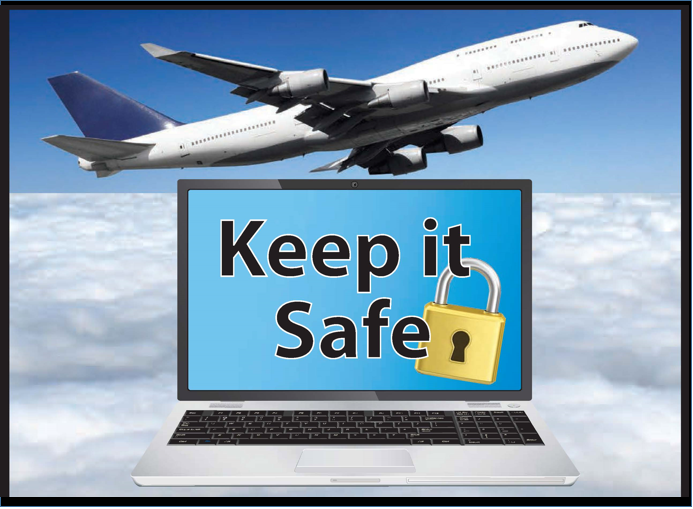By Julie Goldstein. Smartphones and other electronic devices have made it easier to stay in touch and multi-task while traveling. But they can also mean increased cyber risks for keeping your personal and university information private, as well as increased potential for theft.
Stay cyber safe while traveling
A good rule of thumb when traveling is to assume your devices will be lost, stolen, compromised, or even confiscated at an international border at some point during your trip – and to plan accordingly. It is also important to remember that anything you do over unsecured Wi-Fi may be seen by others, including your passwords and messages. Here are some tips to keep in mind:
- Make sure you are able to connect to the Internet securely while you’re away.
- Encrypt your devices, or at least any sensitive information on your devices.
- Only bring what you’re willing to lose – both stored information and the devices themselves — even if they’re encrypted.
- If you’re traveling for UC business, research, or as an international student or scholar, work with your IT department to make sure you’re taking a clean machine or an appropriate loaner device, and that you have the tools you need to connect to the Internet securely.
- Immediately report lost or stolen devices used for work. Follow your location’s reporting requirements.
Special considerations for international travelers
- There are special rules for bringing electronic equipment, research, intellectual property, and encryption technology abroad. Consult with experts at your campus/location well in advance of your trip if you plan to take university equipment, data, or technology outside of the United States.
- Although encryption is recommended to protect sensitive information in case your device is lost, stolen, inspected, or confiscated, some countries restrict the use/importation of encryption software. The US may also restrict its export. See UC’s “International Travel” webpage for information, including lists of countries with travel restrictions and links for additional help.
- If you are not able to use encryption software at your destination, contact your IT department for guidance.
- If you’re traveling for UC business, research, or as an international student or scholar, visit the UC Global Operations (UC GO) website.
More resources
- Inspection of electronic devices at the US border: See UC’s Traveling with Electronic Devices website and this U.S. Customs and Border Protection’s “Inspection of Electronic Devices” fact sheet.
- Updated UC guidance in the ECAS April 2018 Compliance Alert newsletter (see “International Compliance” on page 3)
- General cybersecurity tips for travelers:
- Safety Tips for Mobile Devices
- CyberTrip Advisor tip sheet
- FBI brochure: Safety and Security for the Business Professional Traveling Abroad
- UC Systemwide Information Security Awareness website (for general cybersecurity information, not limited to travel)
Julie Goldstein is a cyber-risk IT security analyst, Information Technology Services, UCOP. This article includes content provided by UC Santa Cruz, and EDUCAUSE (“How to Protect Your Data and Devices While Traveling with Tech” and “Security Tips for Traveling at Home and Abroad”








This article is 100% agreeable. This is a very helpful tip. Check out this blog and you’ll have something to learn from after reading. Great job!